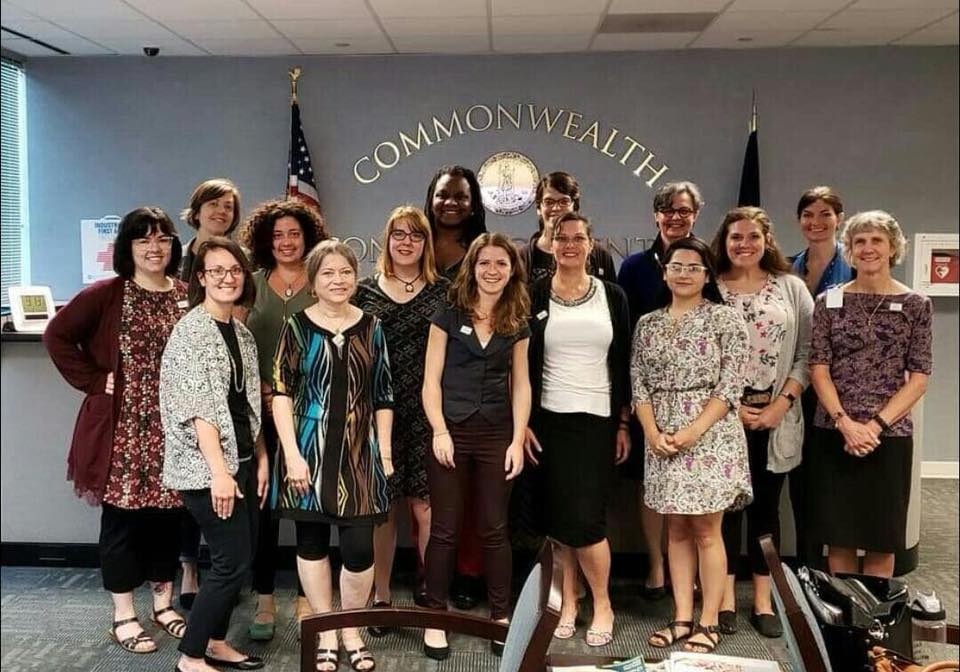By Clara Keane | June 28, 2018 | Advocacy | Events
On the morning of June 26, 2018, fifteen art therapists gathered for an open comment hearing during a meeting of the Virginia Board of Health Professions (BHP) to speak to the need to regulate art therapy to protect the public. The Board’s initial draft report was positive, acknowledging the potential harm to the public if art therapy remains unregulated. Art therapists fielded questions about the profession’s scope of practice, commented on moments of harm to clients they had witnessed, and identified employment obstacles art therapists face due to lack of licensure, which restricts access to art therapy services to consumers.
In August 2017, the Virginia Art Therapy Association (VATA) submitted their 30-page request for review for regulation of art therapists to begin the sunrise review process, defined by the Council on Licensure, Enforcement & Regulation as “a process under which an occupation or profession wishing to receive state certification or licensure must propose the components of the legislation, along with cost and benefit estimates of the proposed regulation.” Should the BHP, made up of representatives of other regulated health professions, determine that there is sufficient potential for harm to the public from continued unregulated practice of art therapy, it will issue a final report recommending that the legislature act to regulate art therapists and suggesting the appropriate level of regulation needed.

Virginia art therapists and a representative from the AATA National Office gather after an open comment hearing during the Board of Health Profession’s meeting.
In February 2018, the BHP released their initial draft report “Study into the Need to Regulate Art Therapists in the Commonwealth of Virginia,” in which they recognized the the potential for harm and for fraud in continued unregulated practice of art therapy in the state:
Harm may be attributed to providers practicing art therapy without the necessary skill set, master’s degree education, supervision and ethical standards necessary to obtain credentialing from the ATCB. Untrained providers of art therapy can cause potential harm to their clients’ emotional wellbeing, as they do not understand how to assess, diagnose and treat patients utilizing art material (pg. 12).
The potential for fraud does exist in Virginia, as there are no existing laws or regulations regarding this profession. Virginia does not acknowledge the profession of art therapy, does not codify a scope of practice, nor does it provide any form of title protection for individuals practicing as art therapists. This lack of delineation between professions creates confusion for the public at large. Consumers are not able to determine actual credentialed art therapists with academic and clinical training who are safe to practice art therapy versus those that claim to be art therapists but have no training (pg. 13).
The full draft report can be viewed on the agenda of the BHP’s Regulatory Research Committee Meeting on February 27, 2018: https://www.dhp.virginia.gov/bhp/minutes/2018/RR_MeetingDocument_02272018.pdf
Following the open comment hearing, written comments will be accepted through 5:00 p.m. on July 27, 2018. VATA is currently collecting submissions. Visit their website to learn more.
Read art therapist Gretchen Graves’ January blog post to learn more about the sunrise review process and the December BHP meeting. The BHP Regulatory Research Committee will meet again on August 23, 2018 for final review and recommendations and will report to the full Board for consideration on the same day. The full report is scheduled to be released on October 1, 2018.
